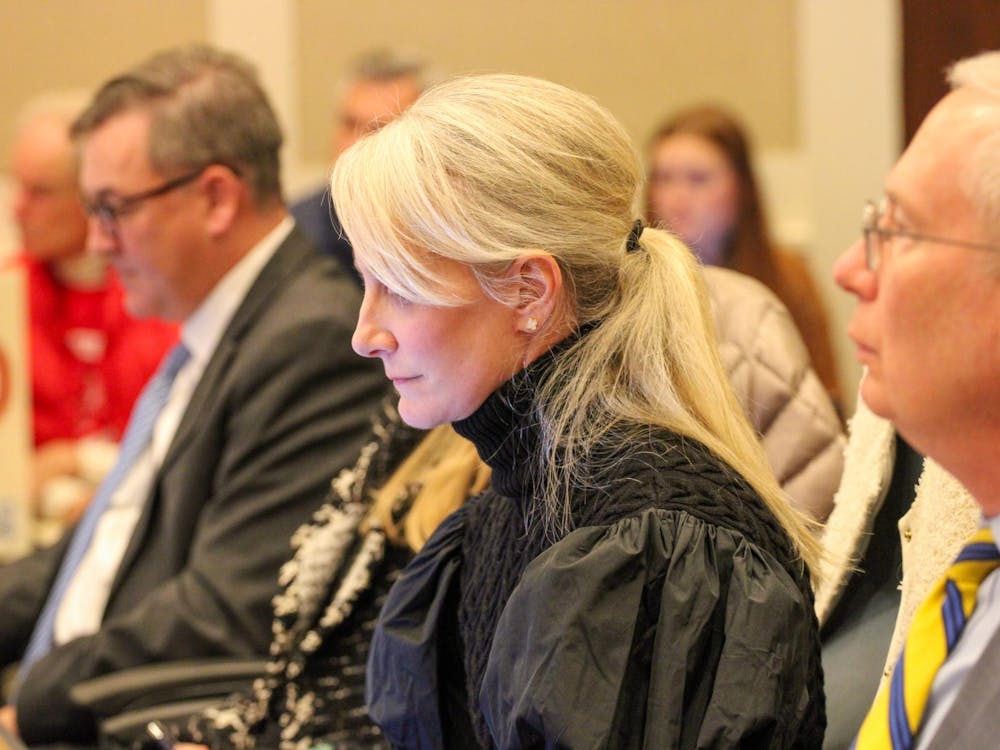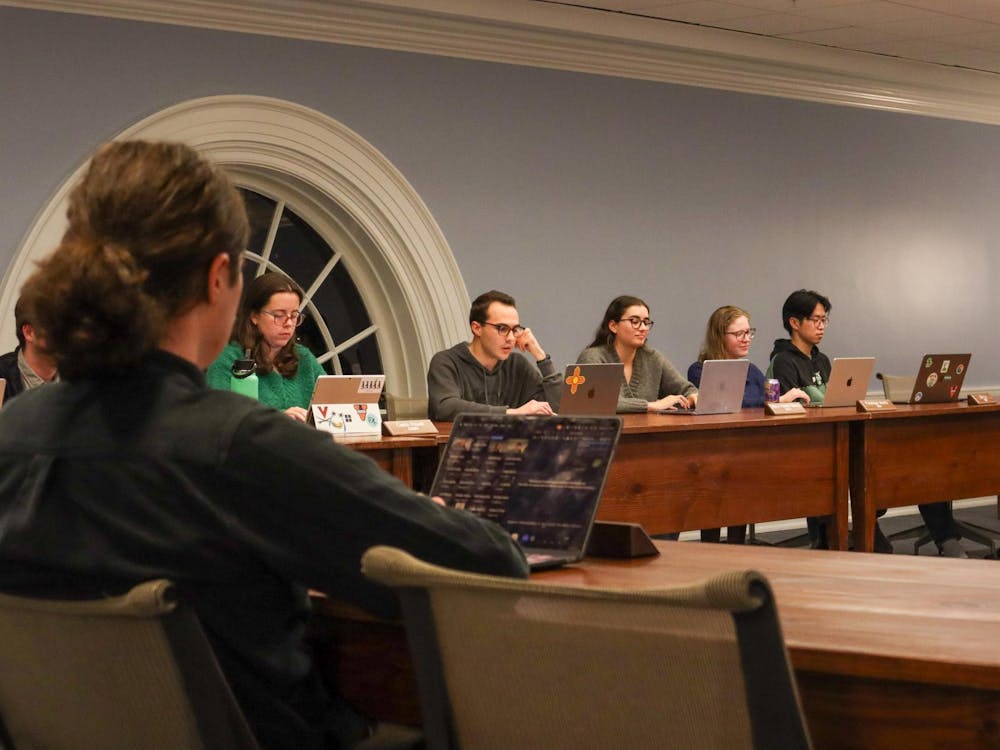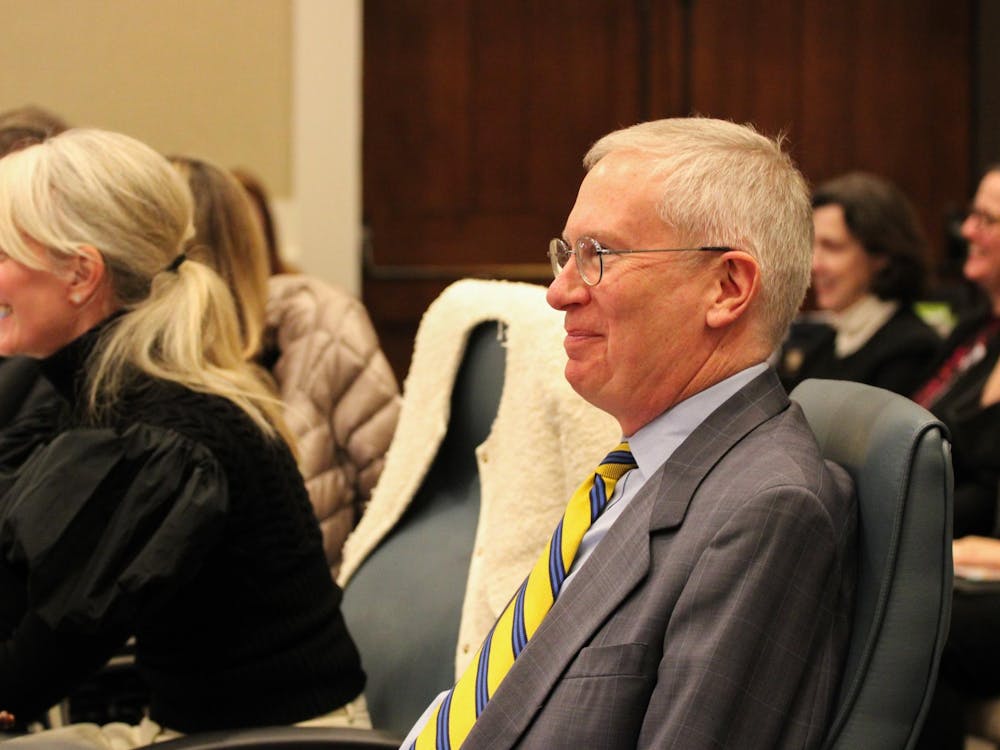Most students come to the University with plans to relax and have fun, and few know what role they will play in the real world. But a small group of Engineering students defy this convention.
The Rodman Scholars are a unique group. These talented first-year engineers don't just idly imagine creations such as a remote-controlled lawn mower, a self-tuning guitar and a system to ensure sleepy drivers' alertness -- they make them a reality.
Each year, the Engineering School selects approximately 35 Scholars from all of its incoming first-years. In addition to other requirements, these students must complete an intensive first-year design project -- a group endeavor in which they not only come up with original inventions but actually create them.
They build from the ground up, from researching and designing to managing funds -- and effectively form their own tiny engineering firms. Some Scholars have even gone on to perfect and patent their designs.
The Rodman program began in 1978, but according to Systems Engineering Prof. Thomas Hutchinson, the first-year project has become an integral part of it only over the past four years. Hutchinson also said this year's 38 Scholars are working on a particularly impressive bunch of projects. "This entire crew is amazing," he said, "and they're actually going to do what they set out to do."
The inventions themselves range from entertaining to useful to potentially life-saving.
One, a novelty lamp called the "Flite", consists of a floating feather-light sphere suspended atop three columns of air and illuminated by an ultraviolet light.
One ambitious group is attempting to create the "Starfinder 2100", a pair of goggles that will identify and guide the user to different constellations in the night sky, via a display screen shown on the inside of the lenses.
Another group, taking its cue from the increasingly serious safety concern of drowsy drivers falling asleep at the wheel, is working on "ERMA" -- the Eyegaze Response for Maintaining Awareness system.
ERMA incorporates a technology developed by Prof. Hutchinson called the Eyegaze Response Interface Computer Aid System, which uses an infrared light-emitting diode to monitor the position and dilation of a person's pupils.
ERMA will put this technology into an automobile, where it will be used to monitor the driver's alertness and sound an alarm if he or she begins to nod off.
All of these projects must be completed within a tight budget -- approximately $4500 for all eight. The money comes mainly from the Engineering School's Parents' Fund, and is not necessarily divided evenly between the groups. "This is kind of like running a small business," Hutchinson says. As in the work world, "the students must come up with the most cost-effective design, and then apply for money."
Despite the amount of work the projects require, the Scholars are also having fun -- one group's automatic drink mixing machine is called "the Intoxicator." And, according to "Starfinder 2100" group member Chris Hickman, that project's name indicates "the approximate year that we'll be able to finish it."
In reality, though, most of these projects will be completed by the end of April -- or at least the students hope they will be. "Of course they get graded on whether or not the projects work," says Hutchinson, "they're engineers. If someone engineers a plane it can't not work."
So for now, the students are toiling long hours. "I've heard that many students are putting in about nine credit hours of work for three credits," Hutchinson said.
Rodman Scholar Alice Hawley, for the most part, agreed. "I think it varies from person to person," she said. "You get out what you put in." However, she continued, "I expect for the last month not to get too much sleep."
Despite the amount of work involved, most students think the projects are well worth the effort. "It's extremely useful," Hawley said, "you learn so much more than you would in a regular class."
And for some students, the rewards may be more than just academic. According to Hutchinson, at least one design project from two years ago -- an exercise machine for the handicapped -- is well on its way to being patented. So keep your eyes out, there may be a "Flite" or a "Starfinder 2100" coming soon to a store near you.






